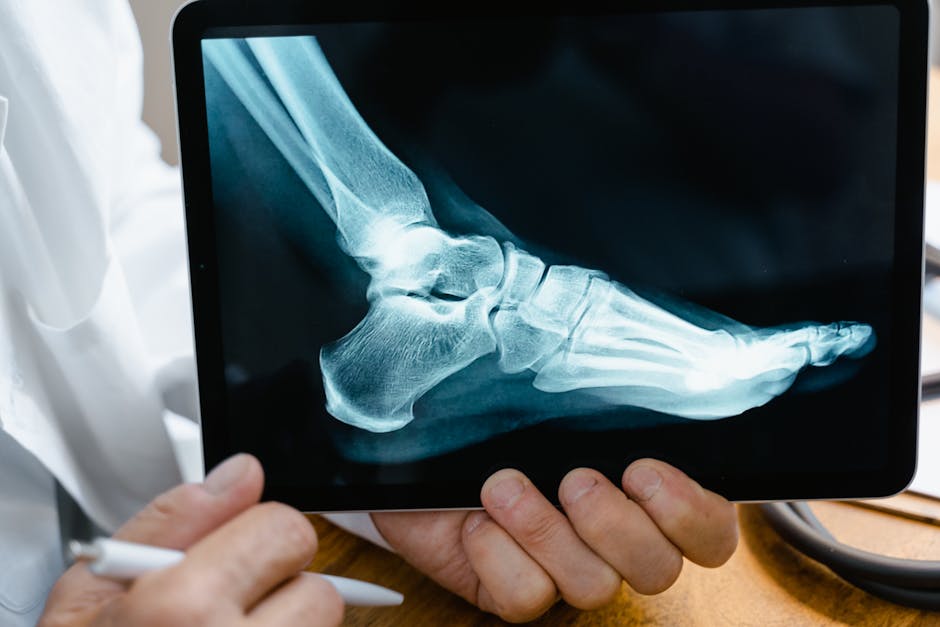
caption
Techno Review: The Impact of AI on Modern Healthcare
The world of healthcare is undergoing a remarkable transformation, driven by the relentless advancement of technology. One of the most influential forces behind this change is Artificial Intelligence (AI). From improving diagnostic accuracy to streamlining administrative tasks, AI is reshaping the healthcare landscape in unprecedented ways. In this blog post, we will delve deep into the impact of AI on modern healthcare, exploring its benefits, challenges, and future potential.
Understanding AI in Healthcare
Artificial Intelligence, at its core, refers to the ability of machines to mimic human intelligence. In the context of healthcare, AI encompasses a wide range of applications, including machine learning, natural language processing, and robotics. These technologies enable computers to analyze complex medical data, recognize patterns, and make informed decisions.
The Benefits of AI in Modern Healthcare
AI offers numerous advantages that are revolutionizing healthcare delivery. Here are some of the most significant benefits:
1. Enhanced Diagnostic Accuracy
One of the most promising applications of AI in healthcare is its ability to enhance diagnostic accuracy. According to a study published in The Lancet Digital Health, AI algorithms can diagnose certain conditions, such as breast cancer, with an accuracy rate comparable to that of experienced radiologists. This level of precision helps reduce misdiagnoses and ensures timely treatment.
2. Personalized Treatment Plans
AI-driven systems can analyze vast amounts of patient data to create personalized treatment plans. For example, IBM Watson for Oncology uses AI to recommend tailored treatment options based on a patient’s unique genetic makeup and medical history. This approach increases the likelihood of successful outcomes and minimizes adverse reactions.
3. Predictive Analytics
Predictive analytics powered by AI can forecast disease outbreaks, patient deterioration, and even the likelihood of readmission. Hospitals can use these insights to allocate resources more efficiently and implement preventive measures. For instance, AI algorithms can predict the risk of sepsis in patients, allowing for early intervention and reducing mortality rates.
4. Streamlined Administrative Tasks
Administrative tasks, such as appointment scheduling, billing, and medical coding, can be time-consuming and error-prone. AI-powered systems automate these processes, freeing up healthcare professionals to focus on patient care. According to a report by McKinsey & Company, AI could save the US healthcare system up to $150 billion annually by 2026 through efficiency gains.
Challenges in Implementing AI in Healthcare
Despite its numerous benefits, the integration of AI into healthcare is not without challenges. Here are some of the key hurdles:
Data Privacy and Security
The healthcare industry deals with sensitive patient information, making data privacy and security a top priority. Ensuring that AI systems comply with regulations such as HIPAA (Health Insurance Portability and Accountability Act) is crucial. Healthcare providers must implement robust cybersecurity measures to protect patient data from breaches and unauthorized access.
Integration with Existing Systems
Integrating AI solutions with existing healthcare infrastructure can be complex. Legacy systems may not be compatible with new AI technologies, requiring significant investments in IT upgrades. Additionally, healthcare professionals need training to effectively use AI tools, which can be time-consuming and costly.
Bias and Fairness
AI algorithms are only as good as the data they are trained on. If the training data is biased, the AI system may produce biased outcomes. For example, a facial recognition system trained predominantly on images of one ethnic group may perform poorly on individuals from other groups. Ensuring fairness and addressing bias in AI models is essential to provide equitable healthcare for all patients.
Real-World Examples of AI in Healthcare
Numerous real-world applications demonstrate the transformative power of AI in healthcare. Here are some notable examples:
Google’s DeepMind and Eye Disease Detection
Google’s DeepMind has developed an AI system capable of detecting over 50 eye diseases from retinal scans with an accuracy rate of 94%. This technology can help ophthalmologists diagnose conditions such as diabetic retinopathy and age-related macular degeneration at an early stage, preventing vision loss.
AI in Drug Discovery
AI is accelerating the drug discovery process by analyzing vast datasets to identify potential drug candidates. Companies like Insilico Medicine and Atomwise are using AI to predict how different compounds will interact with biological targets, significantly reducing the time and cost of bringing new drugs to market.
Virtual Health Assistants
Virtual health assistants, powered by AI, are becoming increasingly popular for providing round-the-clock healthcare support. For example, Babylon Health offers an AI-driven chatbot that can assess symptoms and provide medical advice. These assistants improve access to healthcare, especially in remote or underserved areas.
Future Trends and Potential of AI in Healthcare
The future of AI in healthcare holds immense potential. Here are some trends to watch:
1. AI-Powered Wearables
Wearable devices equipped with AI algorithms can continuously monitor a patient’s vital signs and detect early signs of health issues. Companies like Fitbit and Apple are already incorporating AI into their wearables to provide real-time health insights and alerts.
2. AI in Genomics
AI is revolutionizing genomics by analyzing genetic data to identify disease-causing mutations and predict an individual’s risk of developing certain conditions. This information can guide personalized treatment plans and preventive measures. Projects like the 100,000 Genomes Project are leveraging AI to advance genomic research.
3. AI-Driven Telemedicine
Telemedicine is on the rise, and AI is enhancing its capabilities. AI-powered telehealth platforms can analyze patient data, provide remote consultations, and even assist with remote surgeries. This trend is particularly valuable in improving healthcare access in rural and underserved areas.
4. AI for Mental Health
AI is being used to develop tools for mental health assessment and treatment. For instance, chatbots like Woebot use AI to provide cognitive behavioral therapy (CBT) and support individuals with mental health challenges. These tools offer a scalable and accessible way to address the growing mental health crisis.
Actionable Tips for Healthcare Providers
For healthcare providers looking to harness the power of AI, here are some actionable tips:
Invest in Data Quality
High-quality data is the foundation of effective AI systems. Ensure that your organization collects accurate, diverse, and comprehensive data. Implement data governance practices to maintain data integrity and reliability.
Embrace Collaboration
Collaboration between healthcare professionals, data scientists, and AI experts is essential for successful AI implementation. Foster interdisciplinary teams to bridge the gap between clinical expertise and technological innovation.
Focus on Training and Education
Provide training and education to healthcare staff on the use of AI tools. Familiarize them with the capabilities and limitations of AI to ensure they can leverage these technologies effectively. Continuous learning is key to keeping up with AI advancements.
Prioritize Ethical AI
Ensure that AI systems are designed and deployed ethically. Address issues of bias, transparency, and fairness in AI models. Engage with regulatory bodies and adhere to ethical guidelines to build trust among patients and stakeholders.
Conclusion
The impact of AI on modern healthcare is profound and far-reaching. From improving diagnostic accuracy to streamlining administrative tasks, AI is transforming the way healthcare is delivered. While challenges exist, the potential benefits of AI in healthcare are immense. By embracing AI technologies and addressing ethical considerations, healthcare providers can unlock new possibilities for better patient outcomes and a more efficient healthcare system. As we move forward, the continued integration of AI into healthcare will undoubtedly shape the future of medicine.
Stay tuned to our blog for more insights into the latest advancements in healthcare technology!


